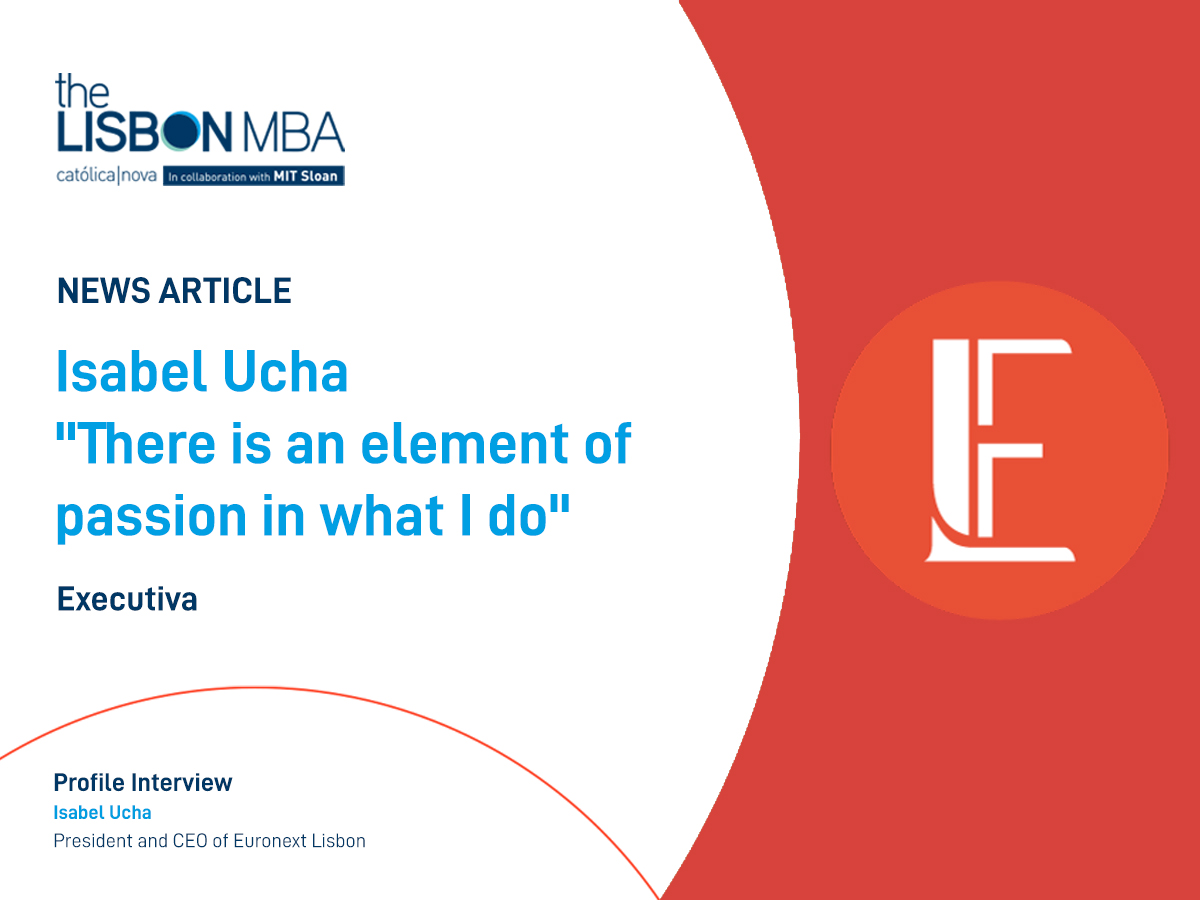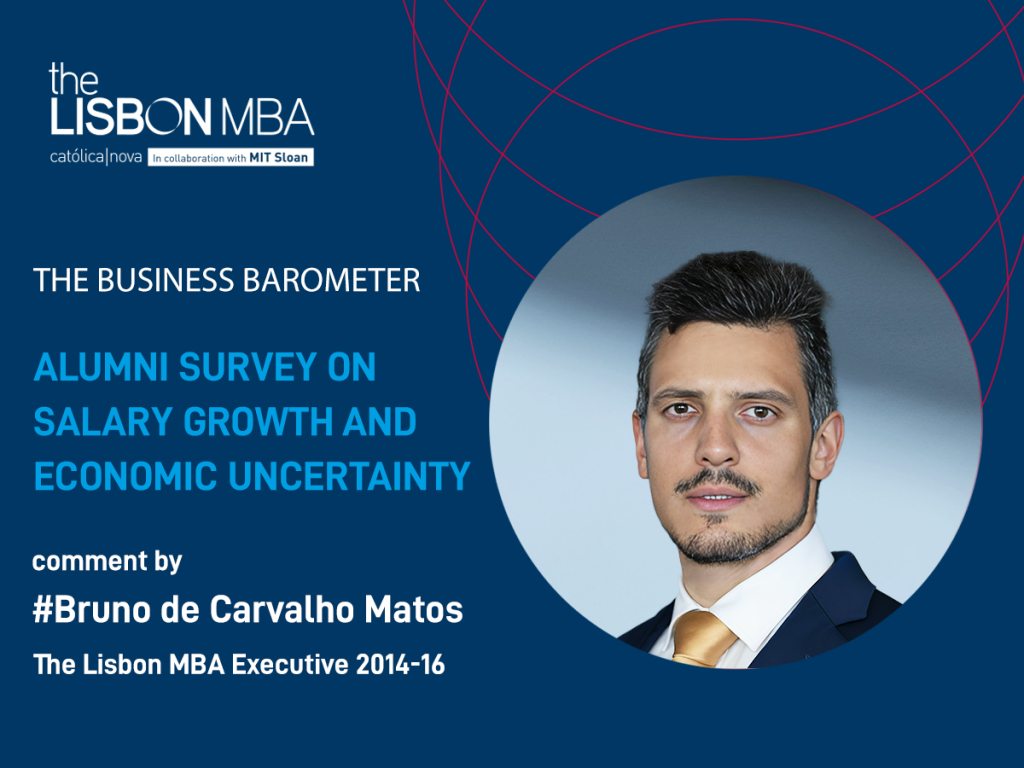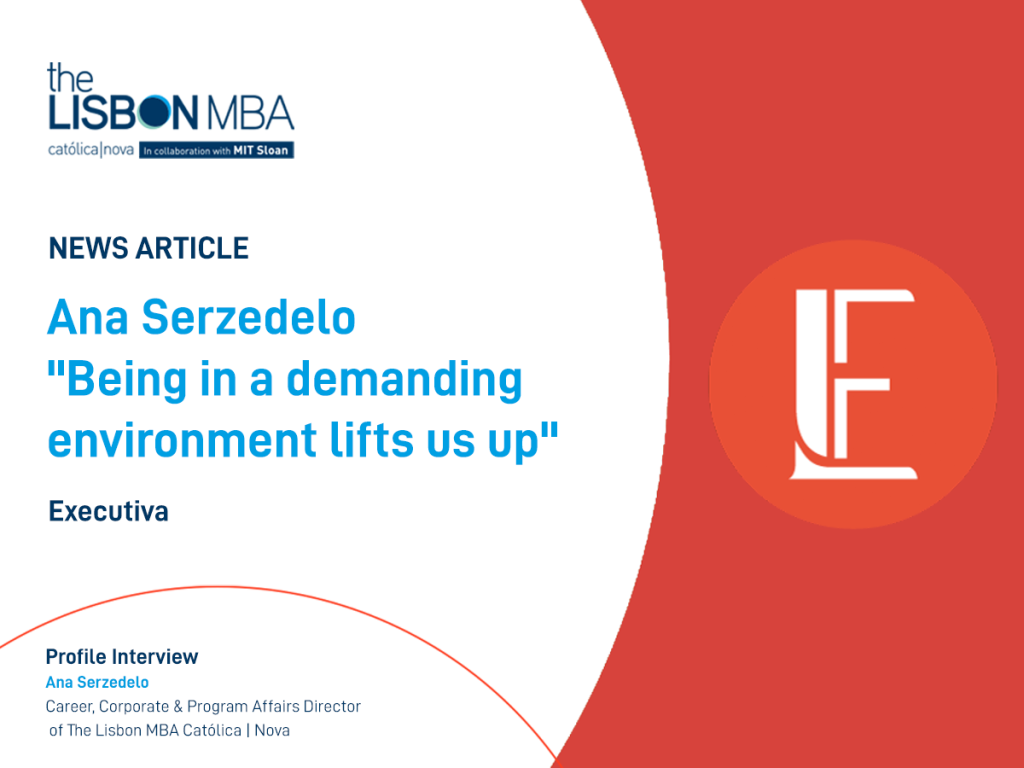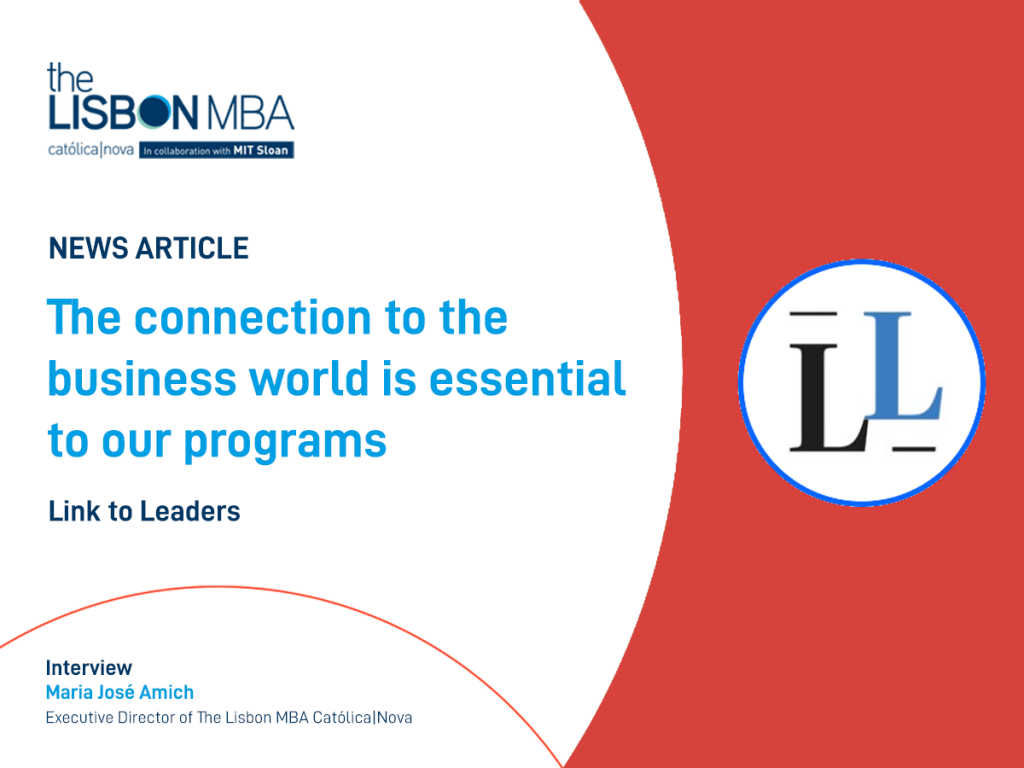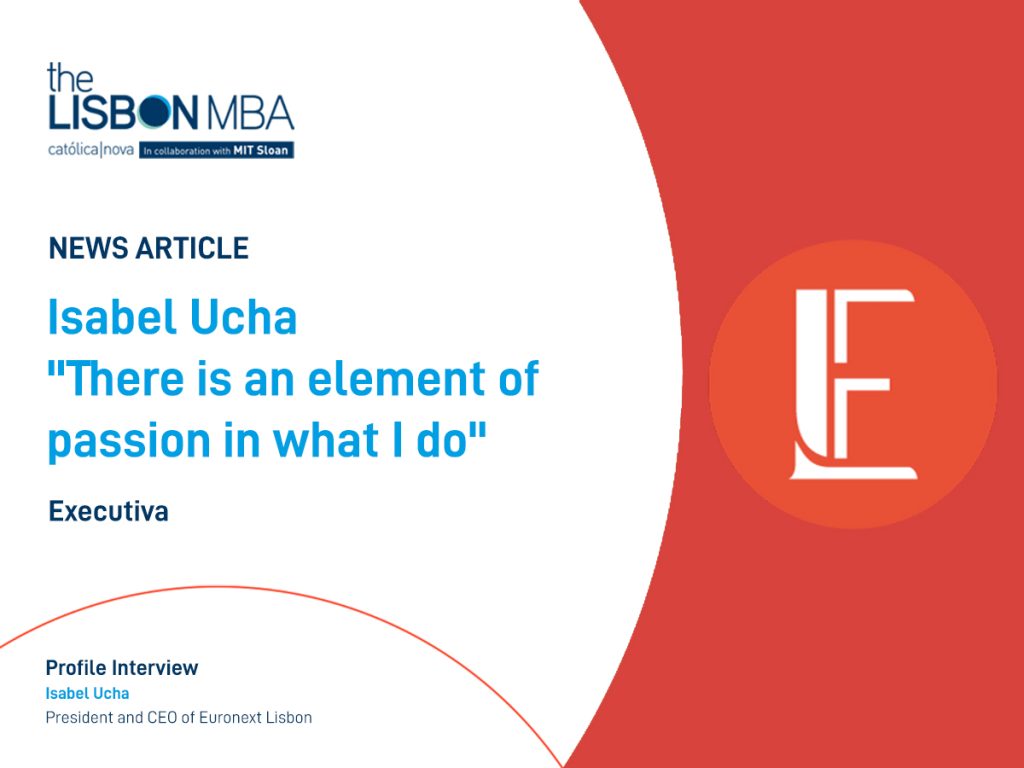In an interview with Executiva, Isabel Ucha, who has led the Portuguese stock exchange since 2019, shared how her passion for economics and finance has shaped her journey to the top. Along the way, she never gave up on another great love: teaching. As a professor of Corporate Governance in the Executive MBA program at The Lisbon MBA Católica|Nova, she believes this program can significantly boost women’s careers.
A deep desire to learn and understand the world and people led Isabel Ucha, President of Euronext Lisbon, into the field of economics and finance—passions that have shaped and defined her path. A trained economist with a degree from Universidade Católica and two master’s degrees (Economics from Universidade Nova and Finance from London Business School), she brings over three decades of experience in management and leadership roles across public and private sectors—always alongside a teaching career. She admits that balancing top executive roles, academia, and family has been “a sometimes challenging exercise,” made possible by her passion for what she does, strict organization, and clear priorities. Isabel joined Euronext Lisbon in 2007 and is one of only three women in the Euronext Group—the largest stock exchange in Europe—to rise to CEO. She also chairs the Board of Directors at Euronext Lisbon and serves as a director of Euronext N.V., the Group’s holding company. Being a woman leader in a male-dominated industry hasn’t stopped her, though she acknowledges that the lack of women in leadership reflects broader cultural issues. “The way men and women take on their social roles and ambitions has a clear influence on this imbalance,” she notes. That’s why she believes it’s essential to “evolve the culture” and keep focusing on diversity. “Euronext and I have been strongly committed to raising awareness and sharing knowledge about gender balance challenges through many initiatives over the years.”
For 30 years, she has been teaching various subjects at Universidade Católica. For some time now, she has been teaching Corporate Governance in the Executive MBA at The Lisbon MBA Católica|Nova—an area that fascinates her. She believes this program can significantly boost women’s careers. “Not just because of the quality of the academic content, case studies, and insights from entrepreneurs and professionals, but also because of the networking it offers,” she emphasizes. “I’ve seen many career opportunities arise from this network.”
What did you dream of when you graduated with a degree in Economics and completed two master’s degrees?
What always motivated me was knowledge. I’ve always had a strong desire to learn more and better understand the world around me. I realized that studying economics and finance, especially economic and financial history, broadened my understanding of the world and human nature. “This journey gave me the preparation and self-confidence to handle roles that require engaging with a wide range of stakeholders at different levels.”
You have a diversified career with over 30 years of experience in management and leadership, alongside academia. How have economics and finance shaped and inspired your path? What value have you found in this diversity?
My career has indeed been diverse, with roles in public service—including some with a political dimension—and in the private sector, always alongside university teaching in various subjects. This has given me a broader understanding of public and corporate life, while also requiring continuous academic learning and engagement with new generations. It’s prepared me to deal with roles where coordinating with stakeholders of different types and levels is essential.
As a professor of Corporate Governance in the Executive MBA, what are the key challenges companies face today in this area?
I often tell my students that at their core, governance challenges are ethical challenges. Organizations built on strong values—and led by people who live those values—form the backbone of good governance. But ethics are not static or context-free. There’s also a growing challenge in aligning laws and governance rules with each organization’s specific characteristics. Each company needs to reflect on what model suits its size and complexity, avoiding unnecessary formalities and inefficiencies.
You’ve been President of Euronext Lisbon since 2019, where you had already worked for over a decade. What’s most challenging about your role?
Euronext is a multinational company managing market infrastructure, mainly in Europe but with growing presence globally. The group’s rapid expansion has been challenging—adding new assets and services requires learning and promoting new businesses in Portugal. In a continent where capital markets still play a limited role in business financing, helping companies diversify funding sources through the market has also been a major challenge. “Executive education—especially with the quality of The Lisbon MBA—can significantly boost the careers of both women and men who join the program.”
You’re one of just three women to reach CEO within the Euronext Group. Why do you think there are still so few women in leadership roles?
The topic of women in leadership has been extensively studied in Europe and Portugal. It remains, fundamentally, a cultural issue—tied to the roles men and women assume in society and family. The distribution of household tasks, childcare, and how men and women pursue their goals all contribute to the imbalance. Company culture mirrors this and must also evolve.
How can an executive program like The Lisbon MBA help women advance professionally?
Executive education, especially a high-quality program like The Lisbon MBA Católica|Nova, can be a powerful career accelerator for women (and men). Beyond academic excellence and real-world case studies, it offers valuable networking. I’ve seen many professional opportunities arise through this community.
What’s your view on quotas for promoting women in leadership? How do you assess their impact on listed companies?
This is fundamentally a cultural issue. To address it, we need to evolve the culture. At Euronext, we’ve been very committed to increasing visibility and understanding around gender balance through various initiatives over many years.
Have you ever found that being a woman either helped or hindered your work? What skills and habits helped you get to where you are today?
Being a woman has never hindered my career, but I know many women do face obstacles. For me, career progression came from my passion for economics, finance, and understanding society. Integrity, work ethic, team leadership, and adaptability have all been key. Daily reading and physical exercise also help me stay balanced.
How have you managed to juggle top executive roles, academic life, and family?
It’s definitely been a challenging balancing act. Passion gives me energy, but it also takes discipline and organization, and clear priorities. I’m proud to have built a family, with two grown children I’m deeply proud of—for their values and our strong relationship. “The development of a Universal Welfare State—offering healthcare, education, and pensions—reduces the perceived need for savings, and therefore, good investment of those savings.”
What has been your biggest professional challenge? And the achievement you’re most proud of?
At 26, with little professional experience, I became an economic advisor in the Prime Minister’s office. I had no political experience. It was a huge challenge that I faced with humility and support from more experienced colleagues. I had to learn quickly, understand political implications, protocol, and put in long hours studying context and people. Those four years were extraordinary.
You’ve said that Portuguese people save little and prefer bank deposits over financial investments. Why do you think there’s a lack of risk culture? Is it due to mistrust or lack of knowledge?
This problem has two main causes: 1) lack of knowledge, and 2) a sense of not needing to save. Financial literacy is low, starting with a lack of early education on these topics. And a strong welfare state lowers the perceived need for savings and smart investing.
Studies show women invest less, but when they do, they get better returns. Does the stereotype that money is for men and investing is only for the rich still persist?
Successful investing is mostly about knowledge and risk profile. I don’t see gender as a defining factor. Financial products often have fixed costs, which makes them more suitable for those with a minimum amount to invest. But technology and financial innovation are making these tools more accessible. So no, I don’t believe investing is only for men or the wealthy
Source: Executiva






